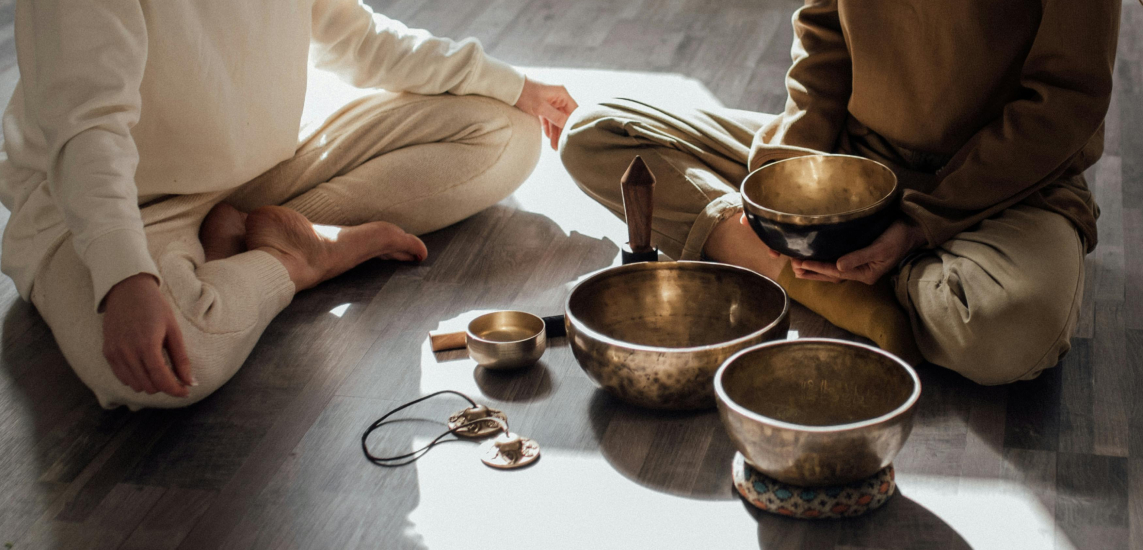A consideration of ethics and values related to working as a mindfulness teacher, brings to my mind ethical parameters for social research. I have been actively involved in this area for the last two years, so these themes are fresh in my mind. And not that a Mindfulness-Based Program (MBP) is a research project, but there appears to be some overlay in how research is conducted and the way an MBP unfolds.
MBPs are after all the interventions around which much recent research has been conducted. There is a level of experimentation and uncertainty as to how the intervention or program content will land for the individuals in the group, while the process of enquiry is at least partially an attempt to have the participants articulate how they relate to that experience, and how it has affected them. It may be that by signing up for an MBP, the participants research themselves, from the inside out, and come to their own conclusions about the extent to which the process of learning how to be mindful in their lives and exploring this mode of being has made a difference in their everyday lives. For therein lie the potential benefits. These will be enhanced by the values and principles adhered to by the teacher and facilitator of the program or course.
Read more: In September 2019, more than 100 leading scholars and scientists submitted a total of 57 papers for a special issue on mindfulness published in the Current Opinion in Psychology. We have summarised all articles to give an in-depth overview of the science of mindfulness based interventions and programs – explore the 7-part blog series here.
Ethics & Values In Guiding Mindfulness-Based Programs
The ethical considerations I’d like to examine as signposts for guiding MBPs, are in accordance with the World Medical Association’s Declaration of Helsinki — Ethical Principles for Medical Research Involving Human Subjects. They can be categorised as follows:
- Autonomy and respect for the dignity of persons
- Nonmaleficence
- Beneficence
- Justice
Make sure you have a look at Michal George’s Insight Timer profile where he offers psychology-based mindfulness meditations.
- Three Mindful Breaths Michal George 1:56
Autonomy and respect for the dignity of persons
The practical expressions of the principle of autonomy include individual and organisational confidentiality and informed consent. In fulfilling these ethical obligations, the MBP facilitator will provide information about the program and may have potential participants sign informed consent forms which will outline what they can expect from the facilitator, and what her obligations may be during the course, while explaining the participants’ responsibilities and their rights.
One of those is the right to have one’s participation in an MBP remain confidential. It will be of benefit to the participants if considerations of confidentiality are reinforced during the course.
At the outset of the program, it is to be made clear that “what is shared in the circle, stays in the circle.” Confidentiality and the limitations of confidentiality may be openly discussed with the group, and the spoken contract honoured by the raising of the participants’ hands. Being part of this process and witnessing everyone else take part, will begin the process of building a safe container — a place within which each participant is afforded the greatest opportunity for development.
Nonmaleficence
The principle of nonmaleficence advocates that no harm is done during an intervention. The benefits of mindfulness practice such as through MBP participation, have been well documented by some rigorous research. Yet there remains potential for harmful behaviour.
As a middle-aged white male teacher, I sense that I enter the teaching space with what feels like centuries of patriarchy and modernism imbued with male dominance. These weigh on my shoulders, but the practical implications of this are revealed in a potential power imbalance. I must be aware, and take responsibility for this, especially when coming into contact with younger female students.
My own experience as a course participant reminds me of how much I projected onto my teachers, holding them in unnecessarily high regard and sometimes elevating individuals, male and female, to spheres from which they could have taken advantage of their perceived position. Luckily I was never harmed, but I see how a power discrepancy in the teacher/student relationship holds the potential for harmful behaviour. It will therefore benefit both the participants and myself, when I as a teacher, follow clearly-set boundaries regarding what is and what is not permissible in the way I interact with those under my care. These could be aligned with the code of conduct prescribed for counsellors and therapists, while the integrity of this space will be well-served by outside supervision.
Beneficence
Beneficence is the realm of how what is offered as an intervention is of benefit to individuals and humanity.
As a teacher I guide participants to the aspiration that what I offer makes a positive difference in their everyday lives. It may be appropriate at this point to mention the roots of the MBP tradition which are grounded in the millennia old Buddhist principles of the realisation of the universality of human anguish and dis-ease related to how our minds interpret reality, and the steps proposed toward the end to this personal and collective torment.
Related to the understanding of this sphere of human existence, the Buddha proposed what have become known are the Four Ennobling Truths.
Read more: Dharma teacher Mal Huxter explores the meaning of dukkha and the Buddha’s four noble truths.
One, that by virtue of being human, we are all subject to misery and torment. Two, that this is the result of delusion and misunderstanding of our true nature and the laws of the universe, and can be largely attributed to the cognitive errors we make. Three, that there is a way to end this anguish. Four, that the path to this fresh space from which life can be engaged with in a graceful way, includes among others appropriate mindfulness, effective meditation practice, and adequate effort. These qualities and values distilled into the MBP will indirectly but powerfully affect the usefulness of the program.
Read more: Learn about mindfulness in Buddhism and contemporary psychology and the differences between the serenity and insight aspects of meditation.
Justice
Finally, justice is the notion that everyone is to be treated equally, that no-one is be left behind or be given special treatment. In the context of an MBP for example, a circle discussion or group enquiry my be dominated by a voice or two. Being sensitive to this, a teacher may actively invite active participation from others in an effort to balance the container, or may steer the discussion for everyone to experience internally for themselves what it is like to speak rather than listen, and vice versa.
Similarly, when an individual’s sharing and levels of vulnerability are such that there is an opportunity to explore, the teacher may invite all the participants to notice how what has been spoken about, has activated within the physiology of their own self. Such opportunities for group exploration with then invite and include those who may be feeling on the periphery or at times left out.
Zen Precepts To Find One’s Heart In Every Situation
I am a longtime Zen practitioner. Zen is the lovechild of Chinese Taoism and Indian Buddhism. It can further be categorised as part of the Mahayana Buddhist tradition, and therefore in accordance with what I understand as the objective of any Mindfulness Based Program (MBP): to be of benefit to others, and reduce their suffering.
Some years ago I took what are known as Zen Precepts, which are modelled on monastic vows but for lay people are understood as aspiration for healthy living. Traditionally the five vows are: no killing, no lying, no stealing, no drinking or drugs, no sex.
Read more: Western Monk Karma Yeshe Rabgye explains how to observe, experience and practice the Buddhist precepts.
My main guiding teacher for some time now, Antony Osler interprets them as DOs rather than DON’Ts. These are what he calls the Five Embodiment Precepts I have vowed to uphold:
- To honour life and death
- To speak honestly and kindly
- To practice generosity
- To live with a clear mind and an open heart
- To be intimate
I’d like to take these aspirations into the space of teaching MBPs. To honour peoples’ experience, their own felt sense of what it means to be living a human life; to extend the kindness of my words to include the shakiness of my own voice when I tremble at times of personal anguish and vulnerability; to be generous in my listening, so I can cultivate the patience to hear what is waiting to be said; to connect authentically to others with dignity and grace.
A day of Zen practice typically ends with the sangha chanting the Four Vows. At Poplar Grove Zendo near Colesberg, SA, where Antony and Margie Osler guide their retreats, they go like this:
Wherever there is suffering, we vow to open our hearts.
In the depth of delusion, we vow to wake up.
Dharma paths are everywhere, we vow to walk them all.
The Way is deep and wide, we vow to embody it.
These daily reminders, modelled on the impossibility of the attainment of perfection, always relax me into being. Realising that there is no way to attain the immeasurable and in fact nothing to attain, I can release into presence and be of service to others. I can open myself to anguish, wherever I find it, including within myself — the realisation of the existence of suffering and a gentle acknowledgement is the force which binds me to the hearts of others.
To accept my own humanness is to honour that I am subject to the coercion of delusion, and the loss of insight — when wisdom is overrun by cloudiness or disappears. That when I realise that this is happening, the promise is to stop, wait, be still and solitary, to turn towards the shadows, to welcome them as guests.
The essence of Zen practice is to find the heart of every moment. Or to find one’s heart in it, and then an appropriate response. It’s distinctly simple: When you speak, I listen. When someone trips and falls, I go and pick them up.
To realise this is to walk the daily Dharma paths and to embody the Way. The Buddha Way, of sincerity and kindness: “It’s nice to see you again!” “I’ve really missed your smile.” May these aspirational aphorisms inform the unfolding of the programs and courses I am to teach.
This article was first published on Michal George’s blog and has been republished here with the author’s consent.





-1.jpg)


